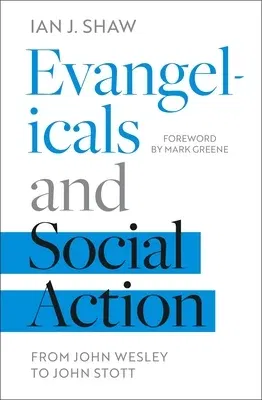Evangelical Christians around the world have debated for years the
extent to which they should be involved in ministries of social action
and concern.
In Evangelicals and Social Action Ian J. Shaw offers clarity to these
debates by tracing the historical involvement of the evangelical church
with issues of social action. Focusing on thinking and practices from
John Wesley, one of the architects of eighteenth century evangelicalism,
to John Stott's work in the second half of the twentieth century, he
explores whether evangelism and social action really have been
intimately related throughout the history of the church as Stott
contended.
After an overview of Christian social action prior to Wesley, from the
early church through to the eighteenth century, Evangelicals and Social
Action explores in detail responses from the evangelical church around
the world to eighteen key issues of social action and concern -
including poverty, racial equality, addiction, children 'at risk, '
slavery, unemployment, and learning disability - encountered between the
1730s and the 1970s. Drawn from a wide range of contexts, these examples
illuminate and clarify how Evangelical Christianity has viewed and been
a part of ministries of social action over the last three centuries.
With an assessment of the issues raised by this historical survey and
its implications for evangelicals in the contemporary world,
Evangelicals and Social Action is a book that will help better inform
the debates around the evangelical church and social action still
happening today. This is a book for anyone wanting to deepen their
knowledge of the history of the evangelical church, and anyone wanting
to better understand Christian social action from an evangelical
perspective.


